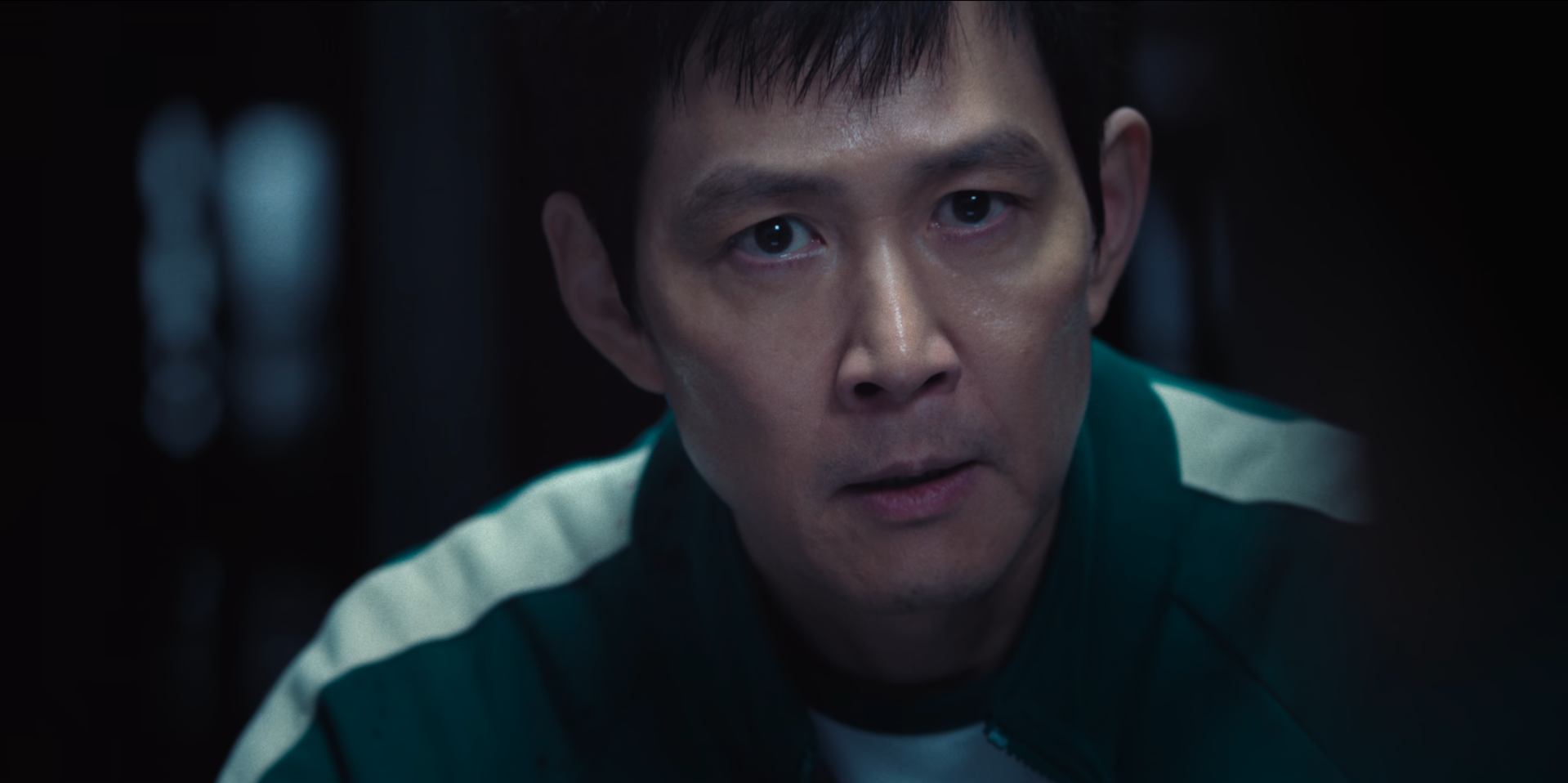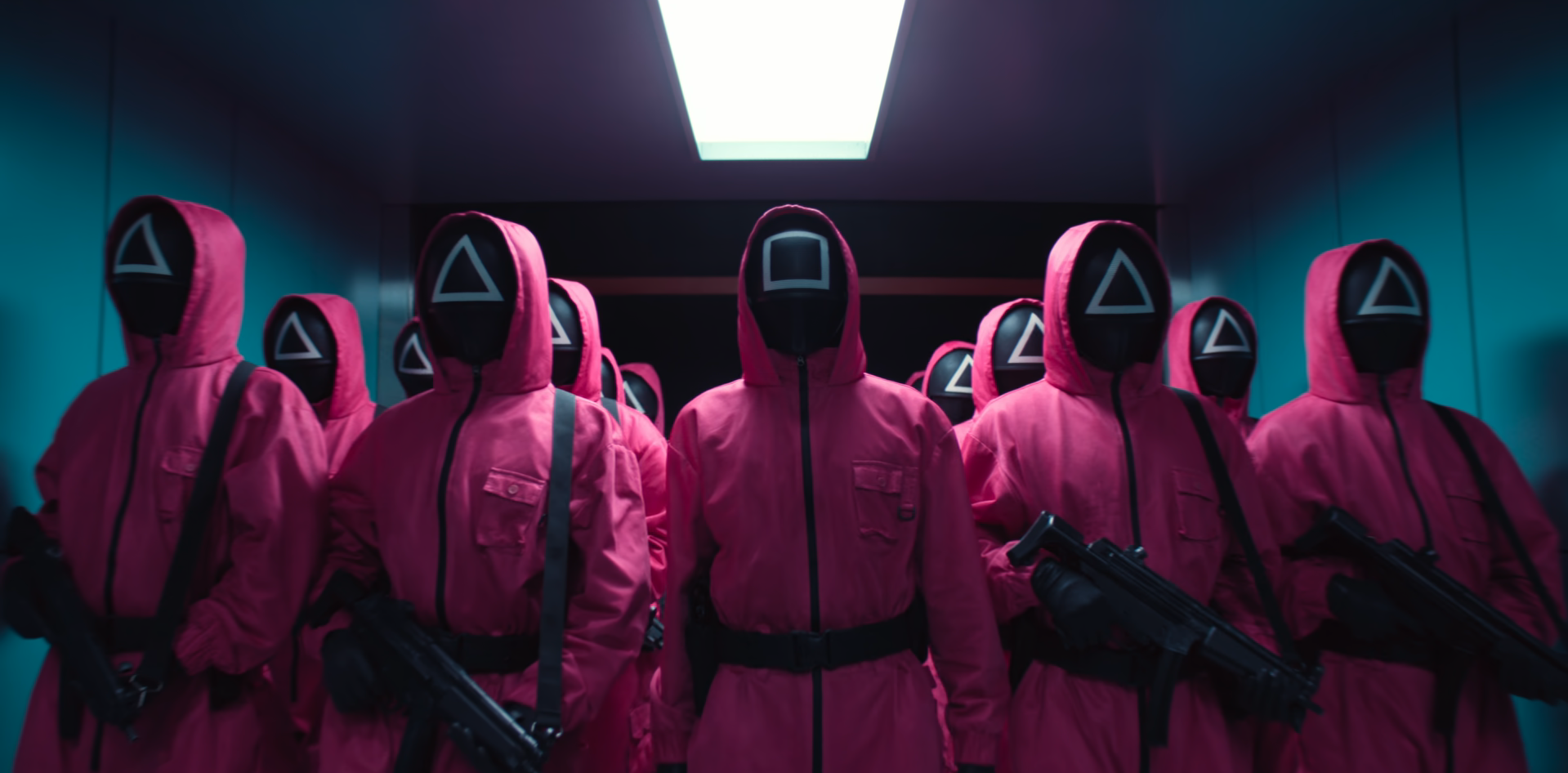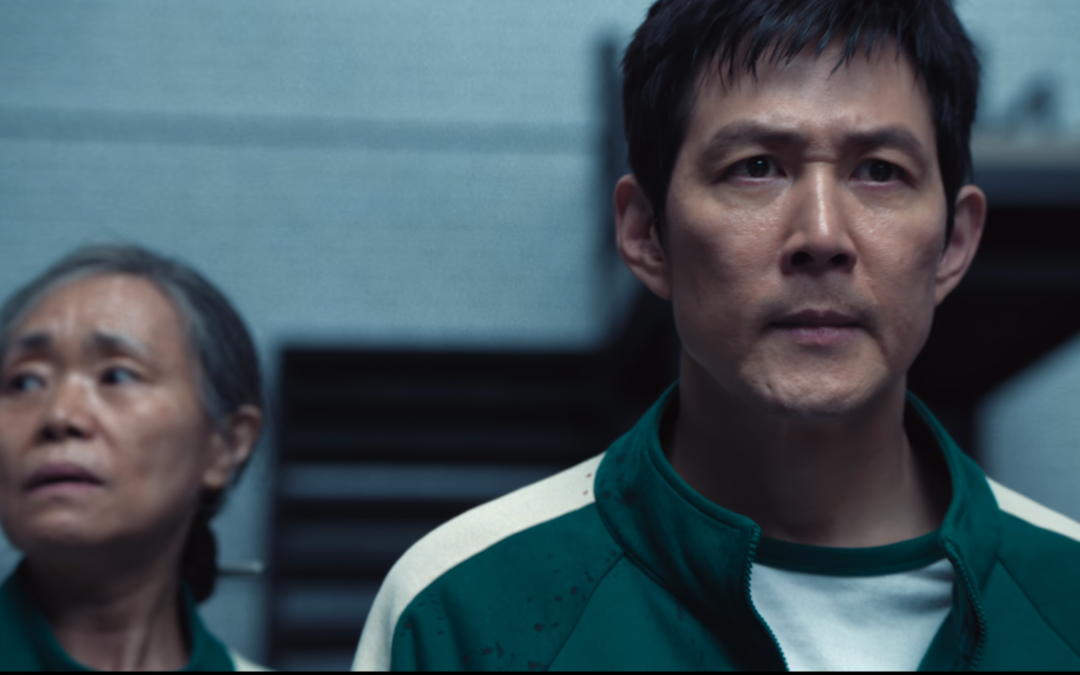The finale episode kicks off with utter chaos, with Thanos’ brutal demise sparking a deadly bathroom brawl that leaves five contestants lifeless. The tension between teams escalates, setting the stage for an explosive night. Gi-hun, ever the strategist, rallies his allies to focus their rebellion on the game’s orchestrators rather than each other. But as darkness falls, chaos erupts, and the dorms become a battleground.
Gi-hun’s team seizes the moment, overpowering the guards and securing weapons. A shootout ensues, leading them to storm the Control Room. Despite setbacks—including betrayals and heavy losses—they fight their way through. The rebellion gains traction but falters as cracks form within the group. In-ho’s betrayal is the ultimate blow, leaving Gi-hun reeling as his comrades fall.

As the dust settles, Gi-hun faces the Front Man in a heart-wrenching showdown. The episode closes with a mid-credit scene teasing another deadly game, leaving us questioning who, if anyone, can truly escape this cycle of violence.
This episode is a high-octane, emotionally charged episode, but it stumbles under the weight of its ambition. While the action is gripping, it feels like a shadow of the first season’s nuanced storytelling. The tension in the dorms is palpable, but the pacing wavers, with moments of brilliance marred by predictability and half-baked subplots.

The episode tries to balance action and character drama, yet many arcs feel rushed or unresolved. Jun-ho’s subplot, for instance, fizzles out without offering any meaningful payoff, leaving his storyline feeling unnecessary. Gi-hun’s naivety, despite his experiences, is frustrating, and the lack of deeper lore around the games diminishes the impact of the rebellion.
Still, the betrayal by In-ho adds a gut-punch moment, and the chaotic shootout captures the desperation of the contestants. The mid-credit tease hints at more to come, but the episode fails to deliver the closure or depth expected in a penultimate chapter.
While thrilling in parts, Episode 7 ultimately falls short of recapturing the sharp commentary and emotional resonance that made the first season a masterpiece.

Conclusion:
The much-awaited second season of Squid Game dives straight into Gi-hun’s pursuit of justice, picking up where the first left off. Determined to dismantle the sinister operation, Gi-hun re-enters the deadly games armed with knowledge but faces unexpected horrors.
Alongside, the story revisits detective Jun-ho, who, after discovering his brother’s dark role, begins his quest to uncover the secrets of the game. While the show builds tension with new games and alliances, the narrative often circles back to familiar territory, leaving much of its potential untapped.
The season’s greatest strength lies outside the games, where glimpses of a larger conspiracy intrigue fail to fully develop. Characterization, a highlight of the first season, falls flat here. Archetypes feel recycled, with few compelling additions. The games, though visually striking, lack the originality and emotional weight of their predecessors.
Despite its flaws, the season retains a semblance of the suspense and style that made Squid Game iconic. However, its inability to innovate leaves it a shadow of its groundbreaking predecessor. With the promise of Season 3 on the horizon, there’s hope the series can reclaim its former glory. For now, it’s a decent, if uneven, continuation of the cultural phenomenon. My rating for this show is 3.5/5.
The much-awaited second season of Squid Game dives straight into Gi-hun’s pursuit of justice, picking up where the first left off. Determined to dismantle the sinister operation, Gi-hun re-enters the deadly games armed with knowledge but faces unexpected horrors.
Alongside, the story revisits detective Jun-ho, who, after discovering his brother’s dark role, begins his quest to uncover the secrets of the game. While the show builds tension with new games and alliances, the narrative often circles back to familiar territory, leaving much of its potential untapped.
The season’s greatest strength lies outside the games, where glimpses of a larger conspiracy intrigue fail to fully develop. Characterization, a highlight of the first season, falls flat here. Archetypes feel recycled, with few compelling additions. The games, though visually striking, lack the originality and emotional weight of their predecessors.
Despite its flaws, the season retains a semblance of the suspense and style that made Squid Game iconic. However, its inability to innovate leaves it a shadow of its groundbreaking predecessor. With the promise of Season 3 on the horizon, there’s hope the series can reclaim its former glory. For now, it’s a decent, if uneven, continuation of the cultural phenomenon. My rating for this show is 3.5/5.





